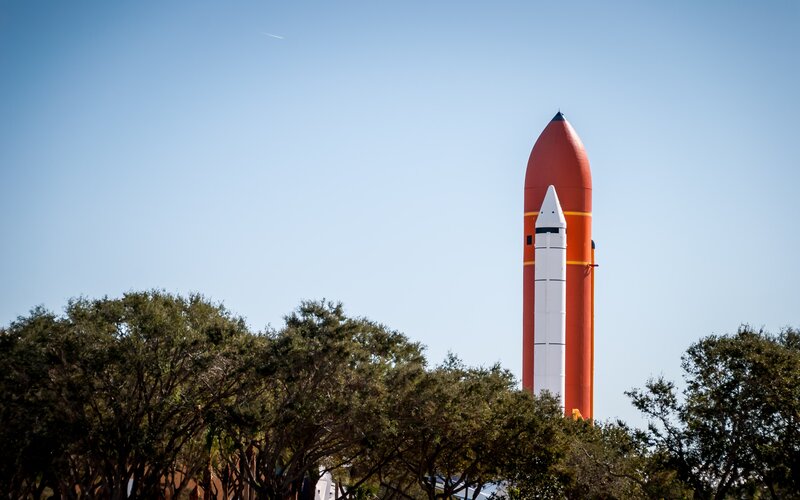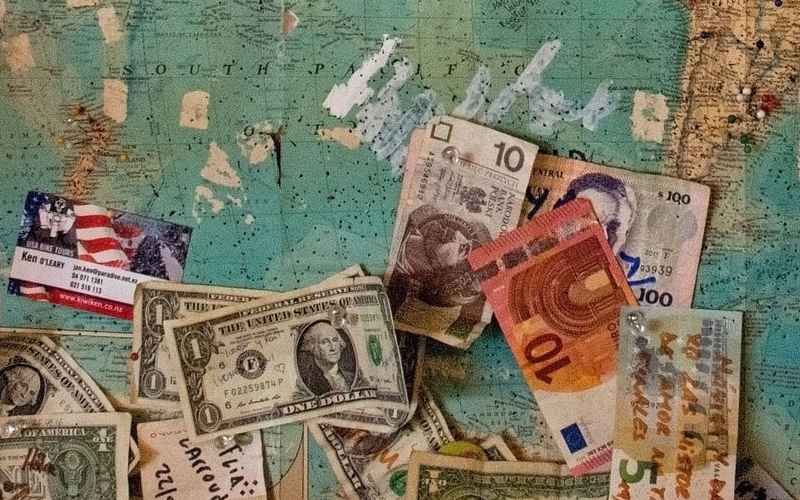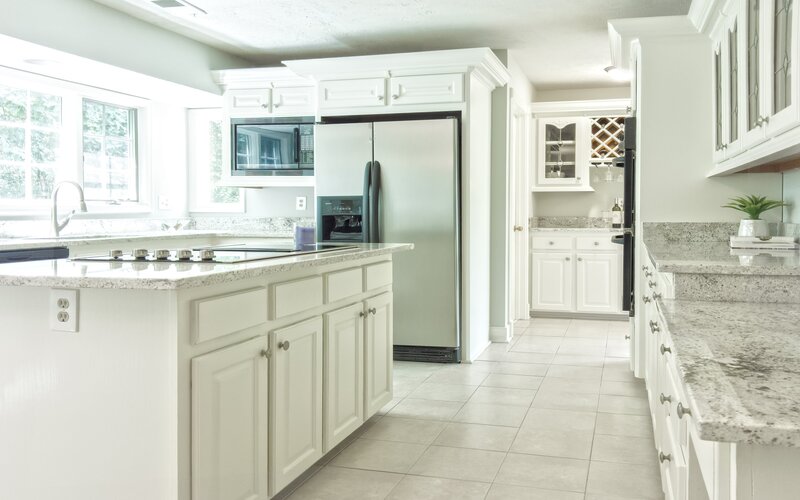A television network's political editor commentating on the RBA Governor, when the RBA is apolitical.
A journalist camped outside Governor Dr Philip Lowe's house asking if he's going to apologise to homebuyers.
No one held a gun to their head forcing them to buy overpriced housing in an obvious housing bubble. Home loans as low as 1.59% weren't sustainable - yes that was partly the RBA's fault, which I'll get into later, but leave Phil alone!
If you did a vox pop a year ago asking punters who Phil Lowe is, you'd get blank stares. Now he's the new Lara Bingle. Where the bloody hell is the common sense?
Such is the lack of celebrity in Australia (outside of MAFS), hating on Phil Lowe - a lifetime bureaucrat - is evidently the flavour of the month, and it needs to stop.
Don't hate the player, hate the game
The fact is, a cash rate of 3.35% is pretty normal.
The difference is, we're now loaded up on debt. Australians love it. That's not the RBA's fault, or direct problem, really.
The boomers love to go on about 17% interest rates, but they have a point - 0.10% was too low for too long, and unsustainable.
In front of a senate committee on Wednesday, Dr Lowe was grilled by senators on both sides of the floor about decisions they should probably look inwards about.
If we're talking in gossip rag terms, Lowe fronted the committee in an unremarkable two-piece suit with button cuffs, and a modest leather-strapped watch, and took meagre sips of water periodically.
Woe betide if he wore a Cartier watch. He drives a relatively modest XC40 for Chrissake.
Like a three-day old grilled cheese from Zarraffas, the questions got a bit stale.
Lowe could have responded to most of the questions by reciting the RBA's remit:
"To promote the economic welfare of the Australian people through our monetary and financial policies and operations. The Bank has [these] key objectives: price stability and full employment."
This includes maintaining inflation, you nincompoops. Rate rises are for your own damn good.
“We hear the message loud and clearly. And we factor that and we talk about at every board meeting how this is really, really hurting some households," Lowe said.
“But we also talk about if we don't get on top of this, the pain will be worse. It's not a nice message, but that's the reality we face.”
He's utterly correct - short term pain for long term gain. Lowe called high inflation 'corrosive', also correct.
But instead, he was goaded into a debate about gas and energy prices by Nationals senator Matt Canavan, something of which the senator will probably use as ammo for a while.
Lowe was also previously pressured to apologise for remarks about 'No rate rises until 2024' - never mind the fact this was never a promise, just relying on available economic data at the time. Television and radio soundbites twisted his words.
Don't apologise, king.
Lowe has now moved to more vague commentary, something of which he'll probably get bashed for as well.
The fact that many senators have no idea about the RBA and economics, and its relatively simple remit, is worrisome.
It gave me flashbacks to Mark Zuckerberg in front of US policymakers a few years ago, absolutely schooling them on big tech and social media.
But Lowe is in between too much of a-rock-and-a-hard-place to be delivering clapbacks.
Bureaucrats and the RBA should be boring
Lowe seems like a gentle, kind man. He's spent a working life with hunched shoulders at the central bank.
He seems like someone I'd like to have a ham and pickle sandwich with, and to chat on our podcast. Please, please, come on our podcast, Dr Lowe.
He shouldn't be hounded in the street while on his way to work or on a morning walk.
No one would have known who he was a year ago. I dare anyone to name former RBA Governors.
Even RBA messaging has become more populist and sexy.
"Global inflation remains very high," Lowe said last week.
"The labour market remains very tight... Many firms continue to experience difficulty hiring workers."
Compare this to a statement from then-RBA Governor Bernie Fraser in January 1990:
"A modest reduction of this order is judged to be appropriate having regard to the slowing in the economy which has occurred and is in prospect, and the continuing role which monetary policy must play in moderating demand and containing inflationary pressures," Mr Fraser said.
God I don't need magnesium to fall asleep, this statement is doing it for me.
What led to high inflation?
Australia is small-fry - the fact is, we have to follow China and the United States, and Europe, on a lot of economic decisions.
Lowe likes to blame demand for much of the inflation problem right now - this Betoota Advocate article highlights it well.
He said it might equate for about half the problem. Well sir, supply must equate for the other half. Notably, monetary supply.
Inflation is simply a calculation of too much money, chasing too few goods.
Bond buying
In March 2020, the RBA cut the cash rate TWICE. On the second swing of the hammer, it also exacted quantitative easing for the first time ever.
That means buying government bonds on the secondary market. That's effectively 'printing money'.
Over this period the central bank increased the monetary supply by about $300 billion - money for states and the feds.
Governments will have to pay back interest as well, which is then passed onto the punter. Someone with a tax bill of $20,000 pays approximately $600 of that towards interest on government debt.
That could go to things like, I dunno, roads, schools, healthcare.
And it'll be higher now we're normalising the interest rate.
Term Funding Facility
In one of the more egregious things that didn't need to happen, in 2020 the RBA exacted the TFF, or term funding facility.
This ostensibly gave banks about $200 billion in three-year fixed loans with interest rates of 0.10% to 0.25%.
The major banks were the big beneficiaries, and they passed a lot of it down to artificially-low mortgage rates.
It's pretty insane in hindsight that you could borrow $1 million on a four-year fixed packaged loan for around 1.89% p.a.
CommBank tapped $51 billion, NAB $31b, Westpac nearly $30b, and ANZ $20b. All major banks used up 100% of their allocation.
They also stashed it back in the RBA's Exchange Settlement Balance (the bank for the banks) - now getting interest rates of 3.25%.
At one stage the TFF made up around a quarter of the RBA's balance sheet - more than gold and other assets.
Well, if you can count, that three years is up, and we're headed for a mortgage cliff, or refinancing tsunami.
Approximately $268 billion in major bank home loans are expiring this year. Two per cent home loans are now rolling off into rates of 6.00% p.a. or more.
There won't be a singular D-Day, more like a slow blood-letting over the next year or two. The blood of recent mortgage holders with the metallic taste of a pandemic.
Do we want an Argentina?
Lowe and the RBA are boned by critics either way.
The alternative to tightening the cash rate is leaving it fast and loose and letting inflation run amok.
Argentina's annual inflation rate was reported at 99% yesterday. Australia's is 7.8%.
Ninety nine per cent is insane. Citizens there have to face things like the price of bread changing daily.
They come to the shop with 100 pesos one day, buy two bags of groceries, and next week can buy only one.
This is what Lowe means when he said inflation is corrosive. It also erodes the value of the currency.
And inflation doesn't go away, unless there's long periods of deflation, which is also corrosive.
Do we want the alternative?
Moronic radio jockeys are calling for the sacking of the entire RBA board.
Hell, why not do away with central banks entirely and go back on the gold standard?
Wait, no one would like that either. It wouldn't be very productive to say the least.
Ask why, a**hole
One of my favourite refrains of all time is from the ill-fated energy trading company Enron and its CEO Jeffrey Skilling, 'Ask why, a**hole' - explained in this blog post.
In relation to the RBA, the cash rate, and mortgage payments, people need to ask why - the RBA might need to do a bit of soul searching itself.
About the only people in mainstream media who have actually properly asked the RBA why, beyond populist retorts, have been: Ross Gittins from the SMH, The Oz's Simon Benson; AFR's John Kehoe, ABC's Media Watch, and 7.30's former presenter Leigh Sales a few months ago.
The latter rightfully asked if the RBA overstimulated the economy, to which Lowe responded (to paraphrase) 'quite possibly'.
However the information at the time was that Australia was staring at a Covid-related economic abyss, trumpeted in no uncertain terms by overzealous health bureaucrats-turned-celebrities (Fauci in the US; Sutton, Chant, Young and co).
It was entirely government (federal and state) decision-making that led to a prolonged blanket lockdown over the country.
This thereby created a two-speed economy - those who made-off like bandits, and those such as hospitality and retail staff who got obliterated.
And the RBA was left to pick up the pieces. It still is.
Governments relied on the RBA to purchase government bonds on the secondary market to fund welfare programs, when spending and debts should have been in-control beforehand, while providing enough fiscal support in necessary areas before the pandemic.
It's true that a bulk of the feds' gross government debt was racked up before the pandemic, while it blustered and blathered, spending taxpayer money hand-over-fist on carparks, sports hall funding, and subsidising 'free' markets.
AusPost and Cartier watches and other tripe was just more anti-intellectual populist scapegoating.
Before the pandemic, the feds said to the public, 'Spend, idiots'. They didn't, and then they did post-pandemic. Who can blame them?
Two years locked down, or the anxiety of being thrust into one.
One case in Queensland, enough to lock down the entire state in 2021, only to open up again conveniently the day before State of Origin.
You deserve that new iPad, queen.
Glasshouses, stones
Of course, the RBA and Lowe are not immune to criticism. Quite the opposite, and myself and the Savings team over the past few years have delivered it. And I'll deliver it again in future.
They constantly have missed inflation targets, and undercooked other economic data.
Colleagues photoshopped Lowe's face on a dove, and I called him 'Dovish Dr Lowe'.
Now the big meany bum has turned into a 'hawk':
"The Board remains resolute in its determination to return inflation to target and will do what is necessary to achieve that," Lowe said last week in his monetary policy statement.
There are genuine concerns to warrant a review
Shortly after being sworn-in as Treasurer, Dr Jim Chalmers announced there will be a review into the RBA.
And it's pretty warranted - it's been decades since the last one.
One of the main talking points will be why it doesn't publicly disclose Board members' dissenting opinions on monetary policy.
The Bank of England does this, so do many other advanced economies' central banks.
On Wednesday Lowe highlighted it's more than just him on the monetary policy board.
“The fact it’s often sheeted home to me is a bit unfair … it’s not just me making these decisions,” he said.
“Because it’s the board there are nine of us including Michelle [Bullock - assistant governor] who make these decisions. And we take them collectively. It’s not just me making these decisions. There are nine people based on the advice of a large staff."
The RBA consists of around 1,400 staff. It's a central bank, large employer, and big machine.
So, let's open it up.
Lowe's term ends in September, relax
Those calling for Lowe's head need to chill.
His term is set to expire in September 2023 - he's been in the job since 2016.
The term was extended for one year to account for Covid, which is pretty modest, considering previous governors have been in the top job for 10 years.
Regardless of who was at the helm during this time, the outcome would have been the same.
Forget about Lowe, Marge - it's Chinatown.
Advertisement
Need somewhere to store cash and earn interest? The table below features savings accounts with some of the highest interest rates on the market.









 Rachel Horan
Rachel Horan
 Alex Brewster
Alex Brewster
 Emma Duffy
Emma Duffy

